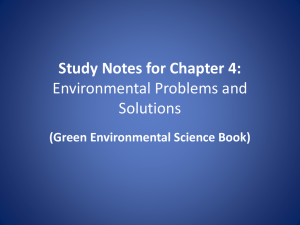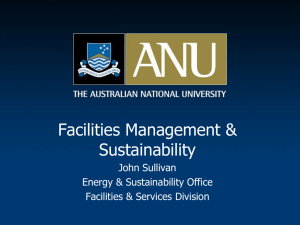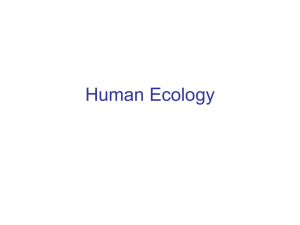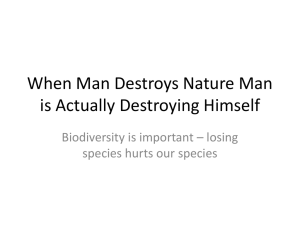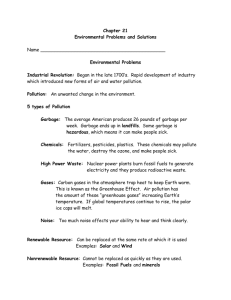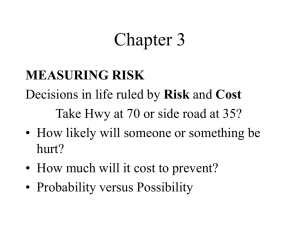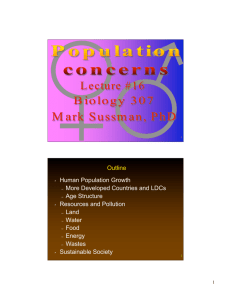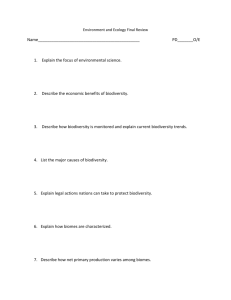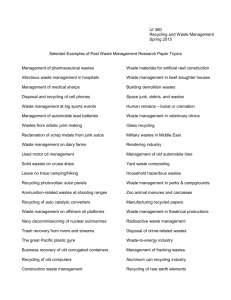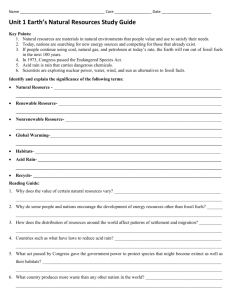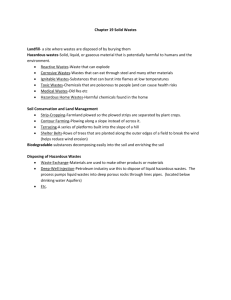Chapter 4 Worksheet
advertisement
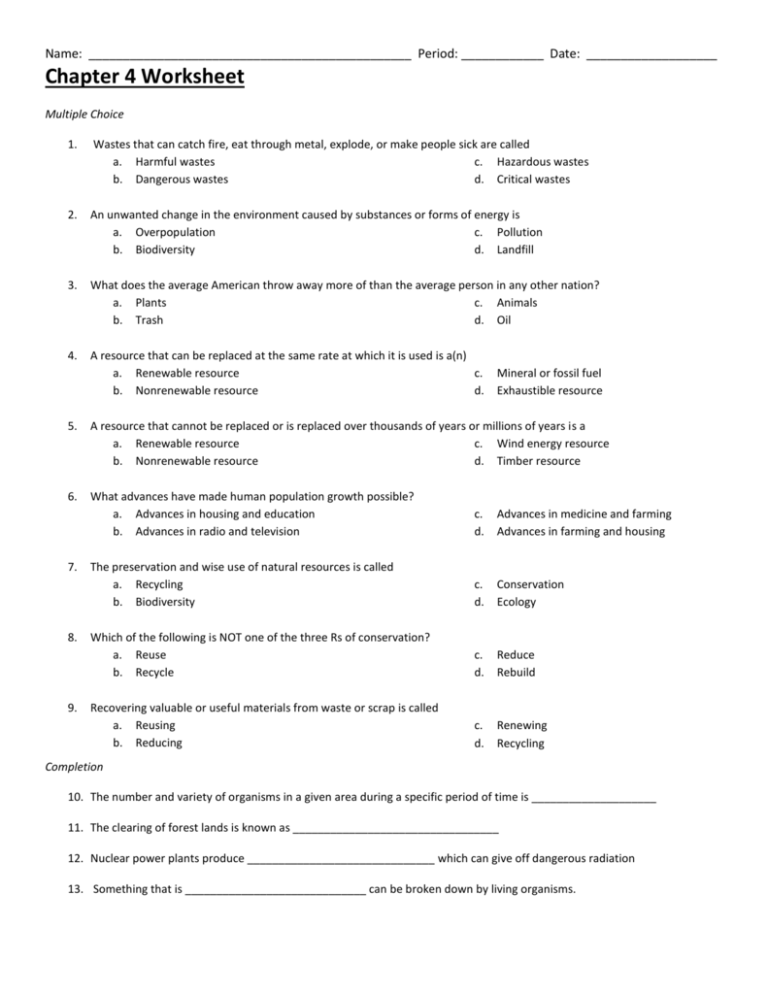
Name: _______________________________________________ Period: ____________ Date: ___________________ Chapter 4 Worksheet Multiple Choice 1. Wastes that can catch fire, eat through metal, explode, or make people sick are called a. Harmful wastes c. Hazardous wastes b. Dangerous wastes d. Critical wastes 2. An unwanted change in the environment caused by substances or forms of energy is a. Overpopulation c. Pollution b. Biodiversity d. Landfill 3. What does the average American throw away more of than the average person in any other nation? a. Plants c. Animals b. Trash d. Oil 4. A resource that can be replaced at the same rate at which it is used is a(n) a. Renewable resource c. b. Nonrenewable resource d. Mineral or fossil fuel Exhaustible resource 5. A resource that cannot be replaced or is replaced over thousands of years or millions of years is a a. Renewable resource c. Wind energy resource b. Nonrenewable resource d. Timber resource 6. What advances have made human population growth possible? a. Advances in housing and education b. Advances in radio and television c. d. Advances in medicine and farming Advances in farming and housing The preservation and wise use of natural resources is called a. Recycling b. Biodiversity c. d. Conservation Ecology Which of the following is NOT one of the three Rs of conservation? a. Reuse b. Recycle c. d. Reduce Rebuild Recovering valuable or useful materials from waste or scrap is called a. Reusing b. Reducing c. d. Renewing Recycling 7. 8. 9. Completion 10. The number and variety of organisms in a given area during a specific period of time is ____________________ 11. The clearing of forest lands is known as _________________________________ 12. Nuclear power plants produce ______________________________ which can give off dangerous radiation 13. Something that is _____________________________ can be broken down by living organisms. Short Answer 14. What in the atmosphere has increased since the Industrial Revolution? 15. What do many scientists believe has happened as the amount of carbon dioxide in the atmosphere has increased? 16. What effect could the rise in global temperatures have on the world’s oceans? 17. What is an exotic species? 18. Describe how exotic species might be moved from one part of the world to another. 19. What is the effect of habitat damage or destruction on biodiversity? 20. Describe how air pollution can harm humans. 21. What is a possible long-term effect of exposure to some chemicals? 22. What are some new sources of energy being studied in the hopes that they will replace fossil fuels? 23. What have car companies developed that will reduce the need for fossil fuels and reduce pollution 24. How does the Endangered Species Act help protect biodiversity? 25. Why are some people concerned about burning waste material to produce energy? 26. List five environmental strategies that people can use to help protect Earth’s environment.
